HotSpots H2O: Honduran Mine Protestor Shot and Killed, Others Continue to Await Trial
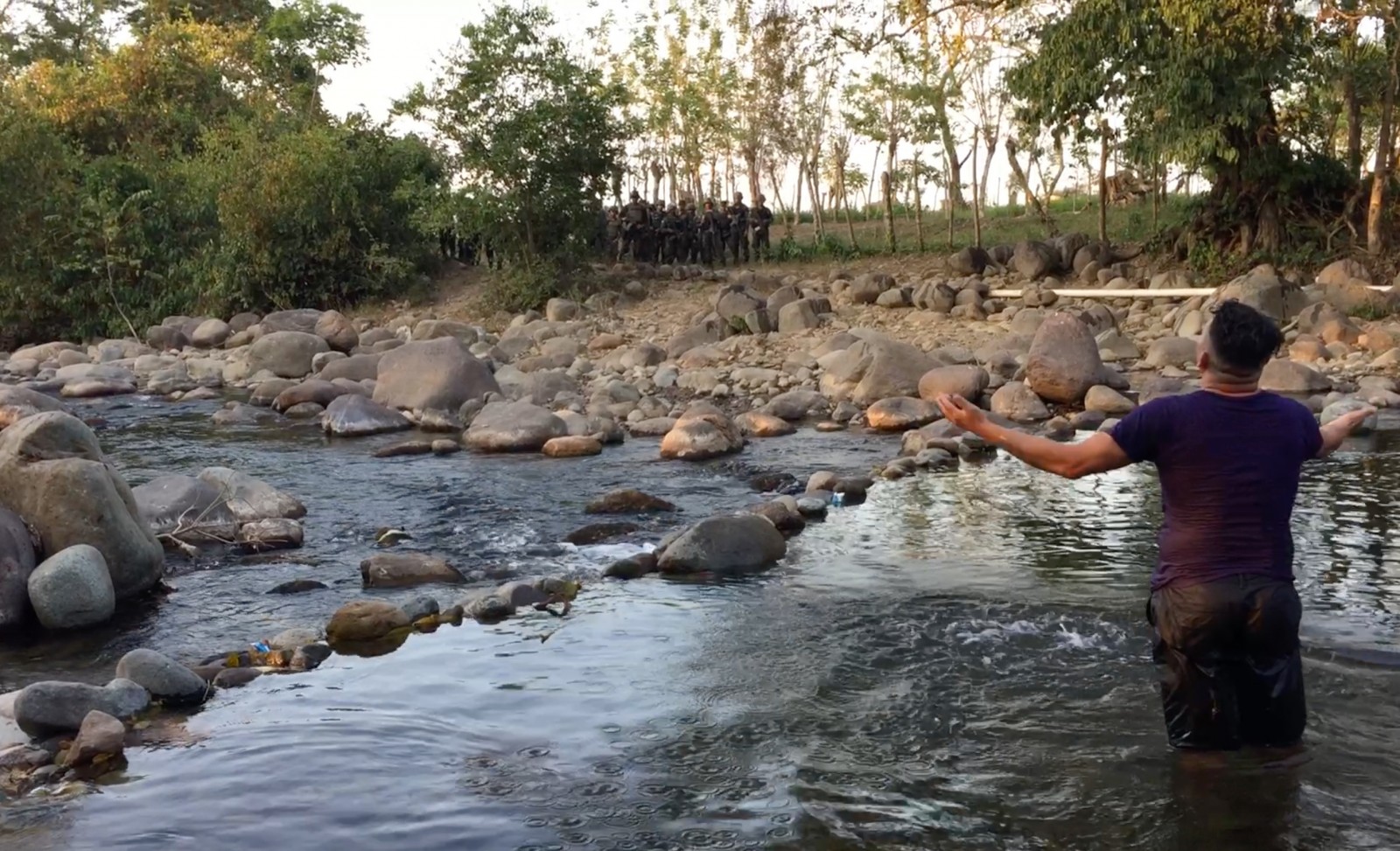
A Guapinol man stands with his arms raised in the Guapinol River. The Honduran army stands on the river bank, just in front of the Inversiones Los Pinares mining concession. © Peg Hunter
A man who protested against a mining development in Honduras was shot and killed inside his home last week.
Arnold Joaquín Morazán Erazo was one of 32 people from the community of El Guapinol charged with criminal offenses for protesting an open-pit iron oxide mine that the community claims threatens its land and water supply. As of this month, with official court proceedings expected soon, eight men have been held in pre-trial detention for over a year. Five others, whose previously dismissed cases have been re-opened, are also awaiting a court date.
Opposition to the mine began nearly a decade ago, in 2011, after nearby Botaderos Mountain was designated a national park. Rivers and other water sources, initially protected by national park status, were subsequently endangered when the government made room for the mine within the park by shrinking the no-development zones. Among the rivers is the Guapinol, which residents of El Guapinol depend on.
Honduras is the world’s deadliest country for environmental activists, according to the research group Global Witness. Nearly 150 people have been killed in the last decade — 14 in 2019 alone.
The company that owns the mine that Morazán protested against is Inversiones Los Pinares. Lenir Pérez, a businessman associated with human rights violations, and Ana Facussé, daughter of U.S.-backed Honduran palm oil tycoon Miguel Facussé, lead the operation.
Ana Facussé is a firm advocate of the current pro-business Honduran government, which took power in 2009 after a coup d’état. Likewise, the government is a strong supporter of Inversiones Los Pinares.
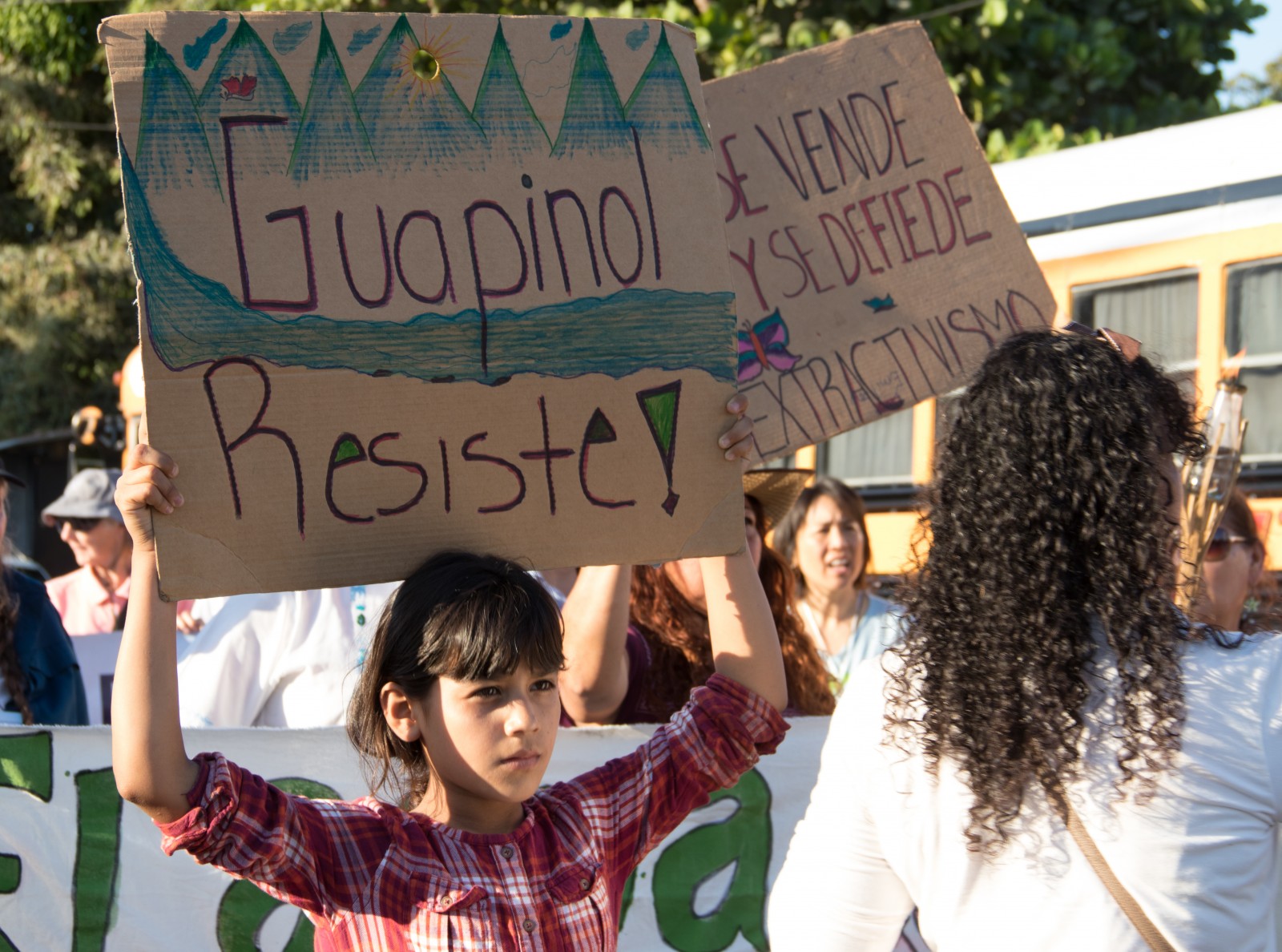
A girl protests the Inversiones Los Pinares mine in Honduras. © Peg Hunter
The charges against the Guapinol activists stem from an event in 2018. They set up an encampment to protest the mine and protect their only source of freshwater. This effort came after tap water in the village turned brown and muddy from the mine, according to the Guardian. Due to the contaminated water, residents were pushed to buy bottled water for drinking, eating, and washing.
Following 88 days of peaceful protest, the encampment was violently broken up. One protestor was shot and injured by a security guard. People in the encampment who restrained the shooter were subsequently charged for holding him after the police arrived. Twelve members were released in spring of 2019, while eight were held pending their trial.
In a 2020 report, Nelson Camilo Sanchez, the director of the International Clinic for Human Rights at the University of Virginia, and his team urged Honduras to release the water protectors.
“In order to rectify the potentially illegal measures adopted against the defenders of the Guapinol River, the State of Honduras should release them immediately and give them the opportunity to face the criminal process in freedom,” Sánchez said of the investigation. “Our research illustrates the government’s tendency to favor economic interests over human rights. The will to attack the freedom of association.”
In June, the Honduras government criminalized social protests as well, further jeopardizing those who demonstrate for clean water.
Because of the Covid-19 pandemic, families are not allowed to visit the water defenders in prison. Their lawyers, who have filed numerous appeals, have been met with silence. In a press conference held by the grassroots organization protesting the mine and defense lawyers, members addressed the re-opening of the five originally dismissed cases.
“The court’s decision reaffirms the clear alliance between the public prosecutor, the judicial branch, and private sector, to punish all of those who dare to defend the natural resources of Honduras,” Edy Tábora, a lawyer for the defense team, said in a statement.
Elena Bruess writes on the intersection of environment, health, and human rights for Circle of Blue and covers international conflict and water for Circle of Blue’s HotSpots H2O.

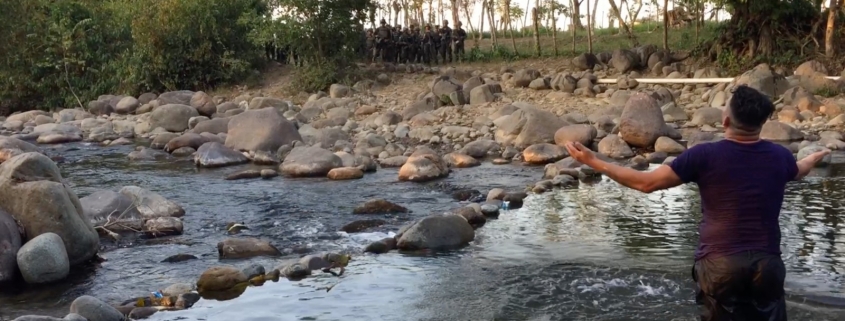

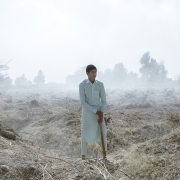
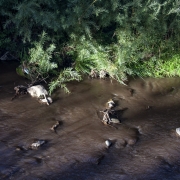
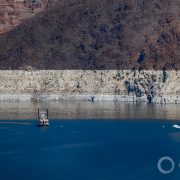
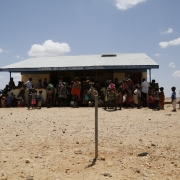

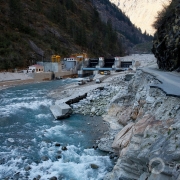




Leave a Reply
Want to join the discussion?Feel free to contribute!